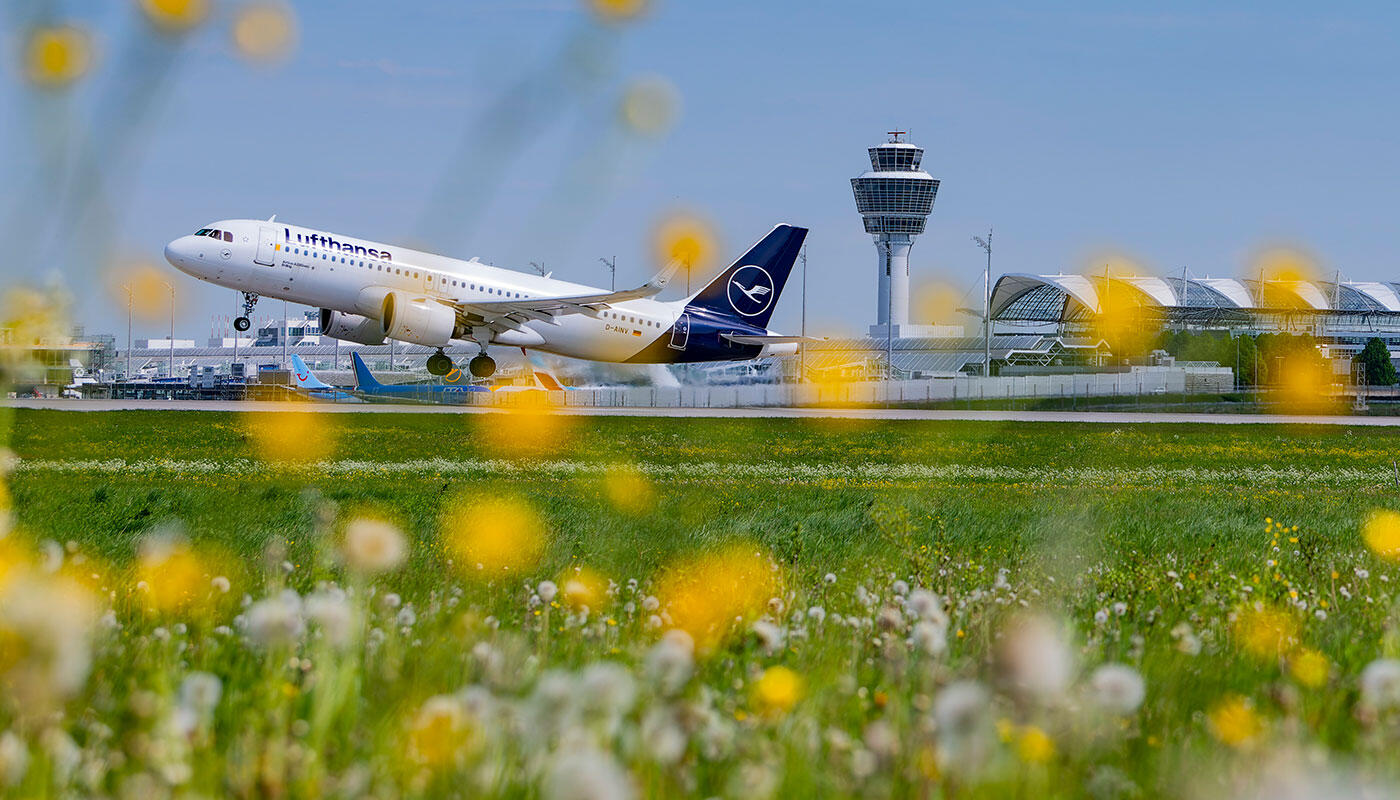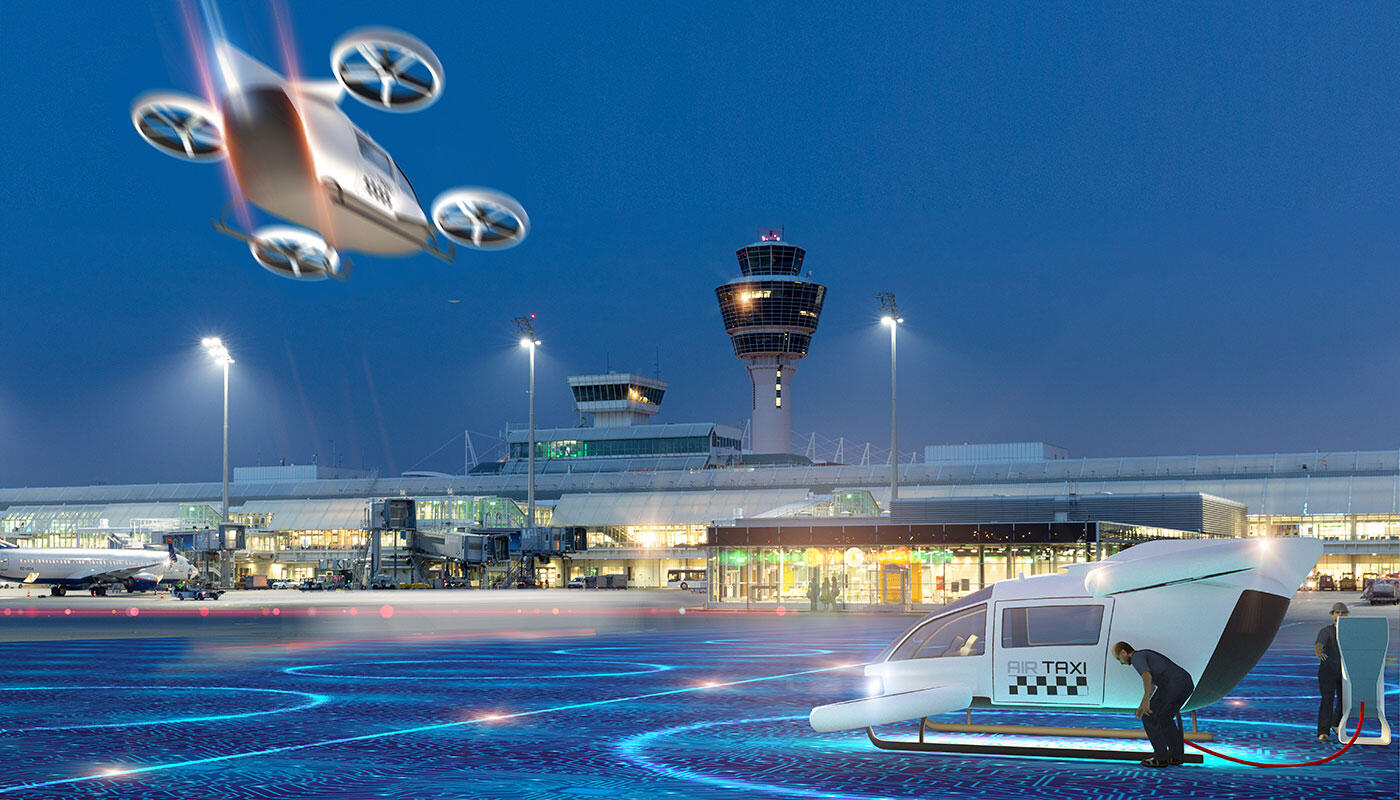Sustainability was a prominent topic across all industries. Several new regulatory frameworks and resolutions were released and implemented on a regional and national level, which also affected the aviation industry. The primary focus was on Sustainable Aviation Fuels (SAF) due to the European Green Deal, which includes the ReFuelEU Aviation proposal. This proposal will become effective in 2025 and will require:
Sustainability in the aviation industry: Where are we heading in 2024?
The second topic which received major media coverage was NetZero. This topic is widely discussed across many industries, but it is particularly prevalent in the aviation industry, especially among airports. There are two drivers for this subject:
- EUROWAGA 2023 (ACI World’s Annual General Assembly and most important event in the airports industry) was probably the starting point for those discussions when over 130 airports committed to NetZero before 2030 and the total numbers of committees for the NetZero 2050 resolution surpassed 300 airports.
- ACA Level 5 was the second driver for this topic when ACI World published the new and now highest level of the Airport Carbon Accreditation Program (ACA) at the United Nations Climate Change Conference COP28 in Dubai. Ten frontrunner airports were certified with this Level on December 6th 2023.
What does NetZero mean?
Unlike carbon neutrality NetZero is requiring companies to remove carbon emissions from their footprint completely. While carbon neutrality allows unlimited offsetting of emissions, NetZero has strict requirements in this regard.
To claim NetZero status, companies are required to remove at least 90 % and offset the remaining 10 % of their greenhouse gas emissions compared to the baseline year (2010 is being recommended by ACA).
What to expect in 2024?
After briefly reviewing the biggest topics of last year, the following section provides an outlook over 2024. It is highly likely that sustainability will remain one of the most dominant topics across all industries this year. Specifically, five issues will keep the aviation industry on alert.
1. SAF (Sustainable Aviation Fuels)
One of the major tasks for 2024 will be to prepare for SAF, as aviation fuel providers and airlines departing from European airports will require SAF by 2025. According to the current regulation, 2% of their fuel uptake is SAF.
And still at the beginning of the year 2024 it is more than uncertain if SAF production can be ramped up to produce approximately 1,250,000 t* (based on European kerosene consumption of 61.5 million metric tons in 2022). Furthermore, some airports might still be uncertain if their fueling system is ready for SAF. Therefore, the aviation industry must act in 2024, to be prepared for the new regulations coming into effect in 2025.
Most important tasks for the aviation industry
The most important tasks regarding SAF for 2024 will be split between airlines, airports, and fuel providers.
- The aviation industry’s image would be severely damaged if some fraud regarding green production of SAF would occur, therefore trustworthiness of suppliers should be the highest priority for airlines.
- The major task for airports will be to check their fueling systems on SAF readiness.
- And ultimately, fuel providers will have to ramp up the production of SAF to ensure the required amount of SAF.
*This figure is likely to be higher due to the increasing air traffic after the covid pandemic.
2. NetZero
After making commitments to NetZero, carbon neutrality, or climate protection in the previous year, airports must take tangible actions towards decarbonization to achieve their sustainability goals and maintain public trust. To avoid criticism and regain public acceptance, it is crucial to take impactful and meaningful actions:
- Address the airports’ biggest emitters,
- work on renewable energy sourcing,
- and maybe even transform into energy hubs for their own, but also local power supply of the surrounding communities.
3. Electric and hydrogen flying
Hydrogen flying
Although hydrogen-powered flight may be perceived as an unrealistic future utopia, it is not as far away as one might think. Airbus is committed to bringing their first hydrogen aircraft, the Airbus ZeroE, to the market by 2035. While Boeing has not yet published a timeline for hydrogen-powered flight, the US aircraft manufacturer has conducted a number of hydrogen-fueled flights. Given the major changes required to airports' fueling infrastructure, 11 years is not a long time for airports to prepare.
Electric flying
Electric flying, on the other hand, is already reality for smaller postal and executive aircraft and, as a matter of fact, SAS Scandinavian Airlines is already selling tickets for their first-ever commercial electric plane flights scheduled for 2028 (travel.flysas.com/electric). Those two facts alone force airports to act and adapt rapidly, since those types of aircraft will require charging infrastructure. While the inability to serve executive aircraft primarily means bigger losses on non-aeronautical revenues, not serving commercial flights could result in a loss of traffic to airports better prepared.
Even if electric or hydrogen aircraft concepts of operation should be ready, safety requirements are not fully clear, yet. This could lead to either remote locations, and therefore a poor passenger experience, or separation from kerosene fueled aircraft.
4. Electrification of vehicles (airside and landside)
Electrified aircraft and vehicles have one thing in common – both require a charging infrastructure. Providing such infrastructure can be challenging for existing as well as new airports. While those challenges might be easier to overcome for new to be build airports, it will need more efforts to find affordable and smart solutions for existing airports.
For the latter, the main limitation will be their grid and the capacity of transformers. Many existing airports were built way before electric vehicles and flying became relevant to be considered in planning processes. Due to these facts either complex charging management systems or an additional grid will be required. Both options are costly and pose major challenges to airport operators. But they can as well offer whole new business opportunities, if executed the right way.
For new airports this hassle can be avoided, provided electric vehicles and aircraft are being considered already in the early stages of planning.
5. Capital markets
When it comes to expansions, airports invest billions of Euros. This requires meeting the demands of today’s capital markets. Many rating agencies and investors require sustainability commitments to grant loans or attractive investments. Loans are based on the achievement of sustainability targets; therefore, airports should be achieving and thus reporting on their commitments.
All these topics can only lead to the conclusion that sustainability will continue to be one of the most dominant topics in 2024 – not only in the aviation industry but all over the globe.
Fostering a sustainable future of aviation
We see sustainability as a major challenge for the industry in the future and we are dedicated to support airports in mastering this challenge. Being a 100% subsidiary of Munich Airport, we, at Munich Airport International (MAI), have a strong background and extensive expertise in sustainability. Our objective is to disseminate Munich Airport’s knowledge to the world and support other airports to be prepared for tomorrow´s challenges while excelling in today’s operations. To date, MAI has delivered multiple projects in the field of sustainability. Those include status quo assessments, ACA certifications, electrification programs, decarbonization / NetZero strategies, photovoltaics projects and wholistic sustainability strategy consulting.
Current projects are, among others:
- North America: We are consulting US airports on how to reach the sustainability targets set in their key performance indicators.
- Europe: We support airports on their way to ACA Level 4 accreditation and advise on a realistic and financially beneficial NetZero strategy.
We also work closely together with our Berlin based subsidiary, amd.sigma, in their airport master planning projects. In these projects, we contribute our knowledge by doing environmental impact studies and making sure, that legal requirements, as well as industry standards are met.
There are many actions being taken across the industry. But for many airports, these are isolated actions taken without an overarching strategy. We work closely with our clients and the airports we manage to integrate sustainability into their strategy, which not only promotes a more sustainable future for aviation, but also benefits the business side of airports.
Author

Michael
Consultant
Are you looking for a partner to support you in achieving your airport’s sustainability targets? Contact us und let us shape a sustainable future of aviation together!
What else is coming in 2024?
Follow us on LinkedIn!
Stay tuned!
2024 will bring numerous novelties in the field of sustainable aviation. Follow us on LinkedIn! We will keep you updated on all the exciting new developments.
Munich Airport's sustainability strategy
Munich Airport was one of the frontrunners of taking actions towards sustainability. Its CSR reporting has achieved several awards, among them for example the Econ award, the BCM award and the LACP award. Very recently it revised its sustainability strategy in many points to be prepared for all new challenges.
The strategy consists of four main pillars:
- securing operations as a premium economic hub,
- developing into a green mobility hub,
- sustainable growth and
- maintaining its role as a modern company.
The pillar of developing Munich Airport into a green mobility hub is tackling the most crucial challenges of the foreseeable future by addressing NetZero, SAF and electrification of vehicles and aircraft.
You can find Munich Airport's revised strategy here.







